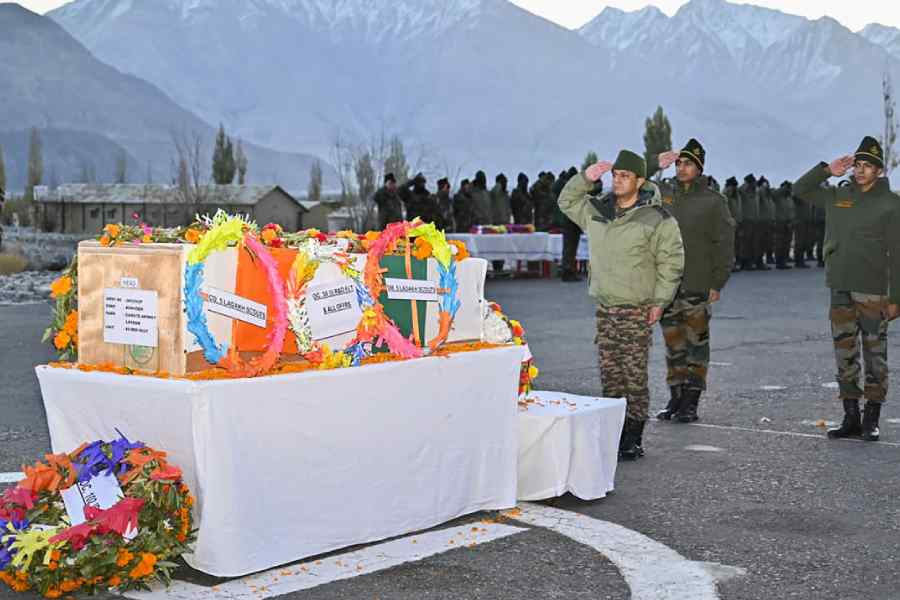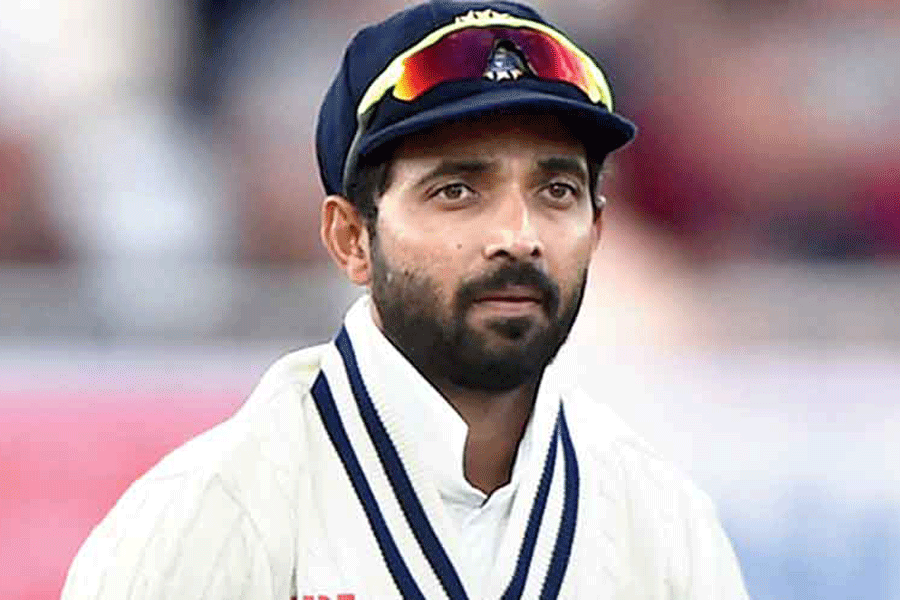Second Agniveer Dies in Line of Duty, Reigniting Debate Over Deployments in Hazardous Terrain
Family of Soldier Killed in Siachen Not Eligible for Pension Benefits

The second recruit death under the contentious system, an Agniveer serving in the world's highest battlefield—the Siachen glacier—died in the line of duty, reigniting the argument about deployments in hazardous terrain without providing pension benefits for the family.
Operator Gawate Akshay Laxman passed away on Sunday, according to a statement released by the Army's Fire and Fury Corps, based in Leh. Laxman was a Maharashtra native; the precise cause of his death was not immediately revealed.
The Narendra Modi government's Agnipath initiative, which was introduced in June of last year, allows troops to be recruited for four years on a short-term contract basis in the army, air force, and navy without the right to pension benefits or gratuities.
"All ranks of Fire and Fury Corps salute the supreme sacrifice of #Agniveer (Operator) Gawate Akshay Laxman, in the line of duty, in the unforgiving heights of #Siachen and offer deepest condolences to the family," the group wrote on X. "Quartered in snow silent to remain, when the bugle calls they shall rise and march again."
Sergeant Laxman's passing was regretted by Army Chief Gen. Manoj Pande and members of the military at all levels.
Last year, a number of army veterans criticized the Modi administration for the “ill-thought-out” Agnipath initiative, which was introduced ostensibly to reduce the soaring military pension and wage costs.
They had claimed that since the plan went against the long-standing military culture and customs, it would negatively impact the force's efficacy and efficiency. Asserting that it takes at least seven to eight years for an infantryman to become an experienced, battle-hardened soldier and three to four years for recruits to acquire the fundamentals of soldiering, they also questioned the professionalism and readiness of troops who had served a four-year tenure.
Well-known social media accounts noted that Laxman was the first soldier to die in combat and for his family to not be eligible for a pension.
Agniveers will get compensation of Rs 1 crore if they give their life in service of the country, according to remarks made during a media conference in Delhi last year by Lt Gen. Anil Puri, assistant secretary in the Department of Military Affairs (DMA). Since there is uncertainty over Laxman's cause of death, it is unclear whether this applies to him.
Following Laxman's passing, "some apolitical objective good Samaritans" pointed out "the grave anomaly in the death/ disability benefits of Agniveers, beseeching the Govt to look into it," according to Navdeep Singh, a lawyer and former military reservist who has written books on military pensions. Singh made this post on X.
"Ironically, the family of this Agniveer Battle Casualty in Siachen (sorry for the dark and seemingly insensitive examples/ comparison) would not be entitled to family pension, even if she/he died in an accident, from alcohol poisoning while on leave, or by suicide," he wrote.
Singh said that the comments he got on social media on the "very valid request" for Agniveers' benefits were educational. "Nobody enlists in the military for financial gain or a pension. The family will receive a lump sum payment from public funds. You are anti-national!" are just a few of the statements made against the fallen soldier. demonstrates our hearts' and brains' condition," he stated.
Colonel Amit Kumar, a veteran army officer, had concerns on the use of Agniveers in difficult environments.
"May God grant wisdom to the current government and bless your soul. It is important to take into account the training of these young people in all weather conditions and the amount of time they need to become familiar with the latest technology for operating weapons, equipment, and machinery," he wrote on X.
On October 11, the army came under fire for refusing to provide an Agniveer who had passed away in Jammu a military burial. He died from a wound that he caused himself, the army subsequently said, which is why the military burial was declined.
Agniveer Amritpal Singh, 19, passed away "due to a self-inflicted gunshot injury" while serving as a sentry in the Rajouri sector, according to a statement from the White Corps, a Jammu-based organization.
Guards of honor are not given in situations involving self-inflicted injuries, according to officials.
The soldier was from Punjab, and according to his family, he was in excellent health before to his passing. They are now requesting an investigation into his death.
The news that Amritpal, "who was martyred in the line of duty in Poonch, J&K, (and) was cremated without an army guard of honor," stunned former Union minister Harsimrat Kaur Badal.
Honorary Captain Bana Singh, an army icon and the sole surviving recipient of the Param Vir Chakra, had said that the Agnipath program would "destroy" the military and benefit China and Pakistan, and that the nation would have to "pay a huge price" for it.
Bana Singh, sometimes referred to as the "Siachen Hero," spearheaded an attack on Pakistan's Quaid-e-Azam post in June 1987 at an elevation of more than 21,000 feet. Six Pakistani troops were killed in the raid, which also resulted in the vital post's capture.
The highest militarized area in the world is said to be the Siachen glacier, which is located in the Karakoram range at an elevation of around 20,000 feet.
Since Indian troops drove the Pakistani army from the highest altitudes during Operation Meghdoot in 1984, the Siachen boundary has cost the lives of about a thousand soldiers.
Except for the headline, this story has not been edited by Press Time staff and has been published from a syndicated feed























































